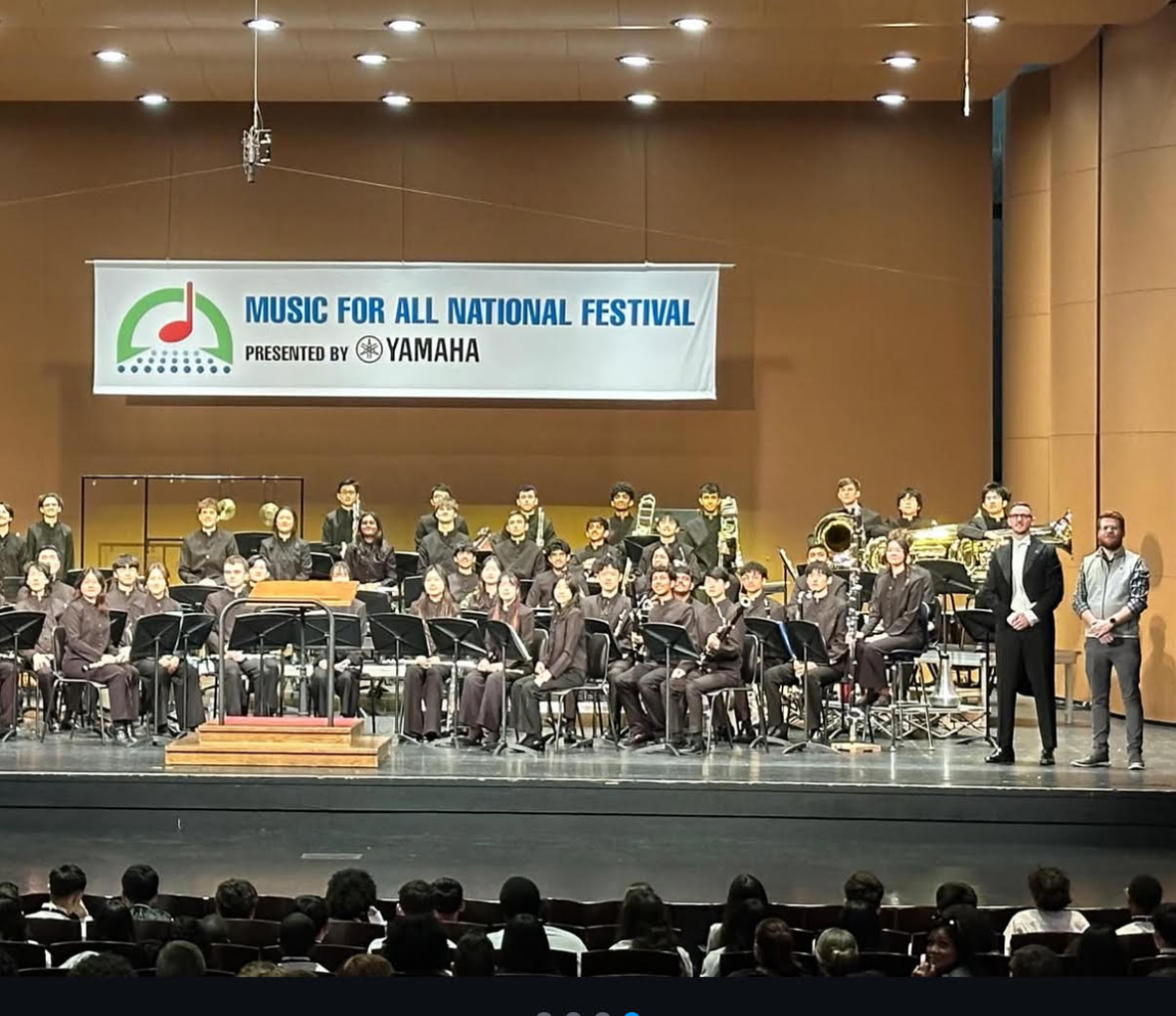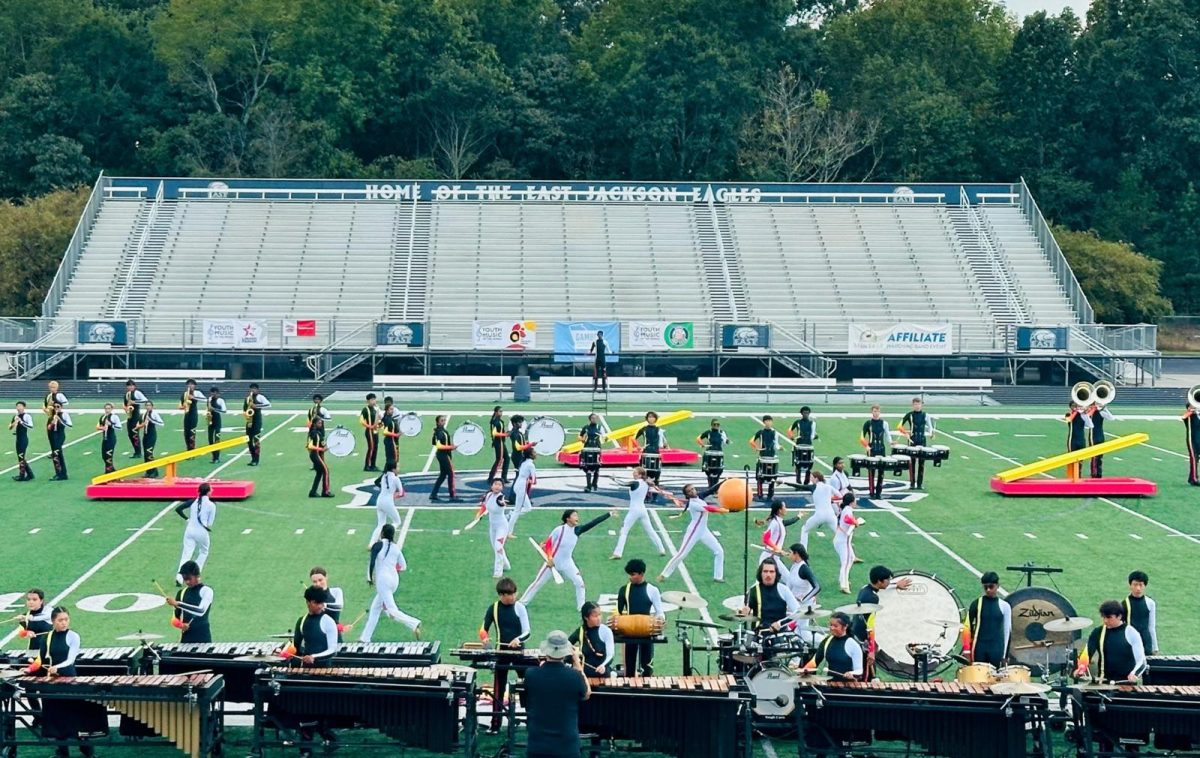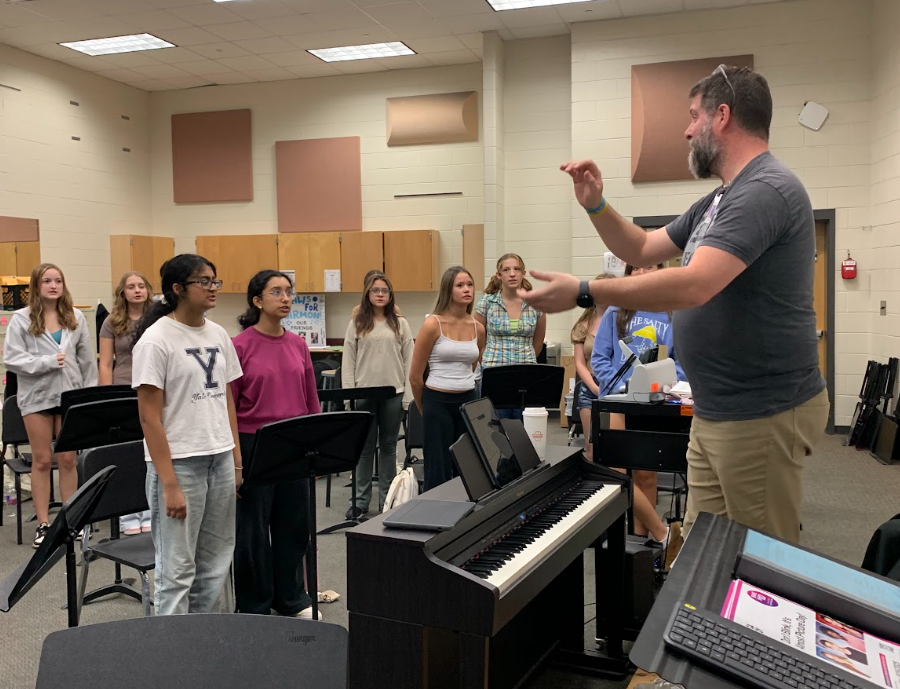In early March, Lambert Bands took the national stage for the Music of All National Festival in Indianapolis—a prestigious invitation-only event that showcases some of the top student ensembles in the country. For trumpet player and junior Ethan Evarts, the experience marked not just a musical high point, but a personal and emotional milestone as well.
“The process of preparing was way more taxing than I was prepared for,” Evarts said. “I was bumped up to first chair and piccolo trumpet spontaneously at the beginning of the year and had to put in a lot of effort to perform the piece at the level I wanted. We spent months rehearsing David Malsanka’s ‘Symphony No. 4,’ which was both technically demanding and emotionally complex.”
For several of the performers, the emotional element became the most profound aspect of their journey.
“I had to be extremely emotionally in tune with this piece to the point where it would sometimes define my day,” Evarts said. “It became a very overwhelming experience for me. I was overwhelmed by emotions I hadn’t experienced before, and it was all part of executing the piece how it needed to be.”
The final movement of “Symphony No. 4” has a way of leaving a lasting impact on musicians, often at a much deeper level than the typical band repertoire. At first, it might come across as another piece for an intermediate ensemble to learn and perform, but as the performers continue to play it, its emotional depth becomes impossible to ignore. The complexity of the movement forces the musicians to reflect not just on the music, but their own lives. The ending of the piece brings about a rare stillness—one that invites silence rather than applause. It’s a moment where the music seems to speak directly to the soul, offering a sense of resolution that feels less like an ending and more like a quiet understanding. For several musicians, it becomes a personal reckoning, a space to sit with their thoughts and emotions long after the final note has faded.
Maslanka’s intent behind the piece—to reflect the spontaneous impulse to “shout for the joy of life”—aligns with a broader tradition of composers who aim to capture the complexity of the human experience. Austrian composer Gustav Mahler’s symphonies, along with several other works that explore the theme of life itself, are often seen as carrying a deeper emotional weight and impact due to their broad portrayal of the human experience.
Outside their own performance, the students had the opportunity to observe other top-tier ensembles. One group in particular stood out to Evarts.
“The most impactful performance I saw was a band at the very end of all the performances,” Evarts reminisced. “Their performance reminded me a lot of Lambert’s own performance at the Midwest Clinic last year and they were extremely in tune with one another.”
Looking back, the students felt as though the biggest lesson wasn’t just about musical growth, but about purpose and collaboration.
“Music is an emotional experience for everyone. It’s how we paint our surroundings and make our lives more like a story,” Evarts stated. “There were times when it felt like we were all extremely demotivated, but because we cared about each other’s experiences and really wanted to execute this music the best we could— not for ourselves, but for each other— we were able to bring it home.”
From months of long rehearsals to a performance on the national stage, the Lambert Bands demonstrated not only musical excellence, but a deep understanding of collaboration and commitment. With another major performance behind them, the group looks ahead to future opportunities to build on this profound experience.















